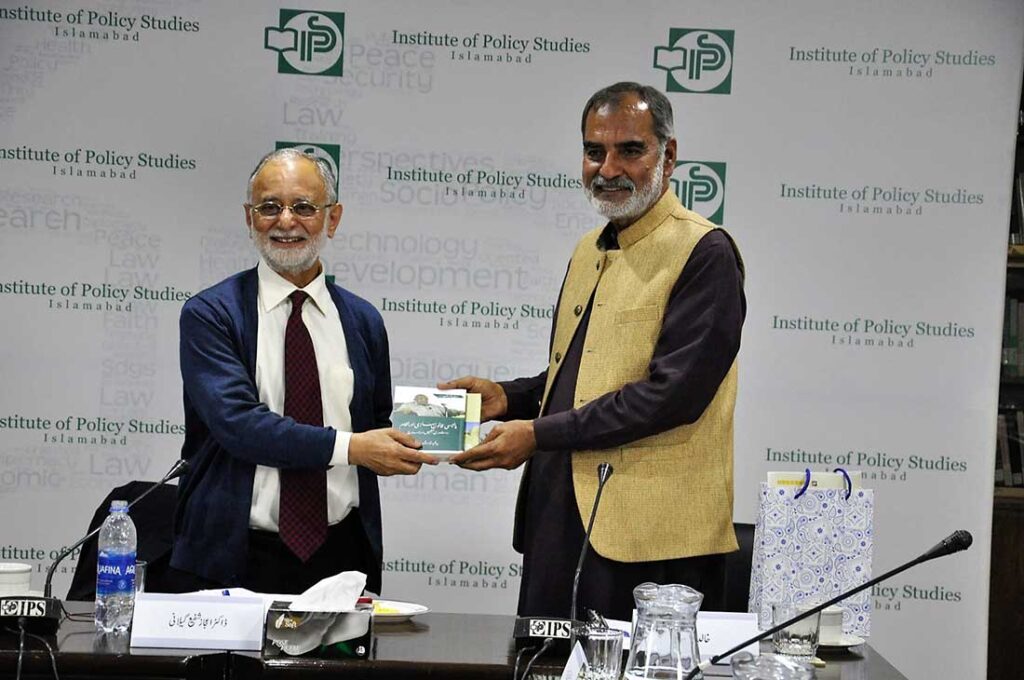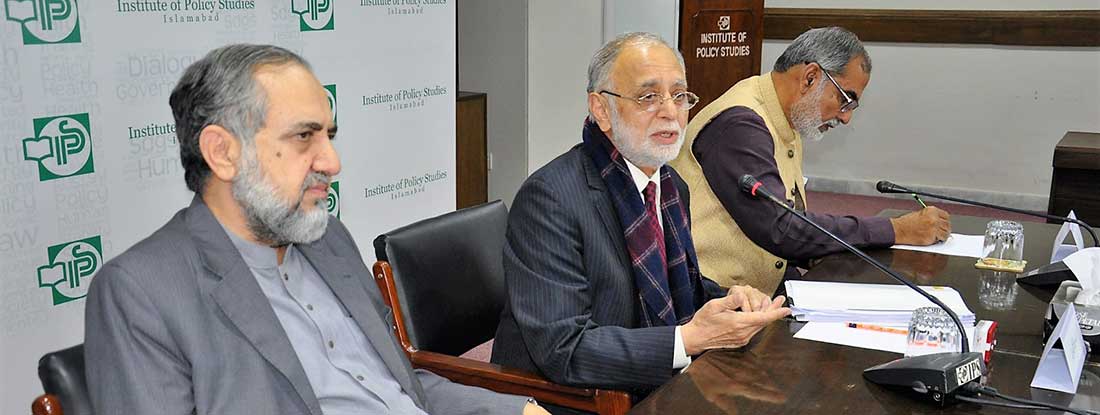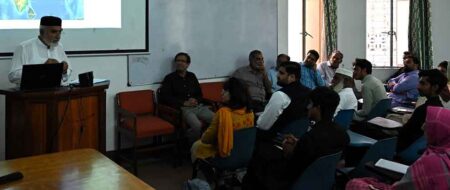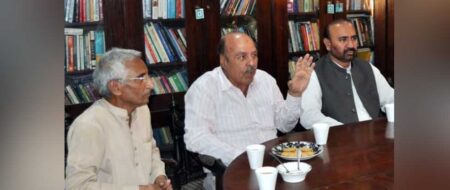‘Contemporary Civilizational Discourse: An Analysis of Three Global Civilizations’
Atheism has evolved into a distinct civilization: Dr Ijaz Shafi Gilani
Islam, Christianity and other faith-based civilizations need to realize and emphasize that atheism is not a global religion but a distinct civilization. This newly-developed civilization claims universalism but it needs to acknowledge the right of other human civilizations to thrive and coexist.
During recent decades, atheism, backed by the secular values and globalization, has evolved into a civilization which is distinct from other global civilizations such as Islam and Christianity. It has evolved out of a peculiar historical background in a particular political and social environment and should not be allowed to impose its ideas, ideals, and values through coercive power over other civilizations, each of which has its own values, traditions, and beliefs.
This was observed during a lecture-cum-discussion held with Dr Ijaz Shafi Gilani, a veteran political scientist and chairman, Gallup Pakistan, split across two days on February 28 and March 14, 2023, on the topic of ‘Contemporary Civilizational Discourse: An Analysis of Three Global Civilizations’.
The session revolved around the recent developments and trends in Islam, Christianity, and Atheism and the prospects of cooperation and/or confrontation between the global civilizations and thought paradigms of the contemporary world.
IPS’ faculty including its Chairman Khalid Rahman, Vice Chairman Ambassador (r) Syed Abrar Hussain, Dr Shahzad Iqbal Sham, senior research fellow, Syed Nadeem Farhat, research fellow, Dr Ghulam Hussain, IPS’ research fellow and assistant professor, Bahria University, and a number of visiting scholars such as Nazeer Ahmad Mahar, founder, The Research Initiative, Dr Sajid Khakwani, Dr Ameer Usman, Dr Ghazala Ghalib, Dr Soumia Aziz, Dr Mir Akbar, Dr Rashid Ahmad participated in the discussion.
Dr. Gilani highlighted that civilization and religion have an important role in the creation of human individual and community identification. As a result, humans have been identifying themselves through groupings based on ethnic, religious, geographical, and linguistic affiliations. Yet, with the establishment of nation states in the 1920s, in contemporary globalized times, state identity has superseded other identities.
He further mentioned that because of its economic and coercive power, this globalized world centered on nation states does not recognize the relevance of civilizational and religious identity so much so that civilizational identities are not even documented for state census statistics in many jurisdictions. The state identity has kept very limited alliance to religious identity as well because religious identity, which in practice becomes a civilization, is deemed a negation of modernism.
Except for the secular/atheistic paradigm, all religious and civilization-based thinking paradigms have been stripped of their rightful bearing on human individual and group identification. Moreover, other civilizations are wrongly comprehended as a fragment of secular thought-based civilization.
While the rest of the identities make an important part of human life globally, for example the identity of 55 percent of the global population is made by only two global civilizations, i.e. Islam and Christianity, these discrete identities should be recognized as they are in the contemporary globalized world without undermining the state identity, underscored Dr. Gilani. In addition to this, civilizations should be considered a part of the state and not in negation to state identity, he maintained.
These lecture was followed by a rich discussion by the participants.
While concluding the session, Khalid Rahman underscored the importance and need for a larger discourse on the subject.














Comment (1)
Toynbee version of civilization and the role of creative Minority in its Development
According to his theory, civilizations can only advance if they successfully address one obstacle before tackling another, another one in a never-ending cycle of “Challenge and Response.” He makes the case that varied surroundings and techniques to overcoming obstacles cause civilizations to grow in various ways. He contends that “Creative Minorities”—those who come up with answers to problems and encourage rather than force others to follow their inventive lead—are what propel progress.
Toynbee does not believe that outside aggression or a lack of grip over the social or physical environment would lead to the collapse of civilizations. Instead, it results from the “Creative Minority” deteriorating, which finally stops being creative and just becomes a “Dominant Minority.” He contends that the worship of their “past self,” which makes them arrogant and unable to appropriately confront the next problem they encounter, causes creative minority to degenerate.
Pakistan creative Minority at this juncture of our state History is not bringing solutions for our varied challenges and coercively itting on their driving seats. I dont know who will be the change agent, but it will definitely change or otherwise we will face the brutal consequences as a nation.
Comments are closed.